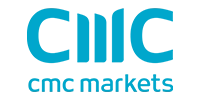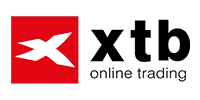Table Of Contents
- Best FOREX Brokers in Spain in 2026
- Top Tips for Choosing the Best FOREX Brokers in Spain
- Best FOREX Brokers and Platforms for Beginners in Spain for 2026
- What Is FOREX and Why Do We Need a Broker to Trade?
- How Do I Choose the Best FOREX Broker in Spain?
- Regulation and Licensing in Spain
- Leverage
- Stop out
- Commissions and Fees
- Payments, Deposits, and Withdrawals in Spain
- FOREX Trading Customer Service
- Technical Aspects of the Broker’s Website
- Trading Platforms, Tools, and Features
- Ask Other Traders on Our Network
- FOREX Trading Scams and How to Avoid Them
- Will Your Money Be Protected if Your Broker Becomes Insolvent?
- The Dos and Don’ts of FOREX Brokers
- Tradable Assets and Instruments
- Which FOREX Broker Has the Best Platform?
- Which FOREX Broker Charges the Lowest Fees?
- Which FOREX Broker Offers the Most CFDs?
- Which FOREX Broker Offers the Most Assets?
- Which FOREX Broker is Best for Professionals?
- Who is Arincen and What Do We Do?
- Conclusion
- Arincen’s Review Methodology
Best FOREX Brokers in Spain for 2026
With many years of meticulous FOREX broker testing, Arincen stands out as a voice of authority. Our analyses, shaped by exhaustive data collection, are trusted by many. Each year, we gather 120 data points from more than 100 brokers. Our team of more than 20 people collaborate extensively to produce high-quality broker reviews like this one. For a detailed explanation of how we test brokers, navigate to the bottom of this article.
Note: We earn money by selling ads, placements, or through partnerships with some companies we have agreements with, learn more.
Best FOREX Brokers in Spain in 2026
| Company Name | Regulations | Minimum Deposit | Main Branch | |
|---|---|---|---|---|

ICM capital |
FCA | $200 | London | |
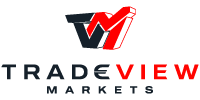
Tradeview |
SCA | $0 | New York, United States of America | |
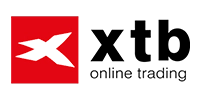
XTB |
FCA | 0$ | United Kingdom | |

IG Group |
FCA | $250 | United Kingdom |

| Company Name | ICM capital |
| Regulations | FCA |
| Minimum Deposit | $200 |
| Main Branch | London |

| Company Name | Tradeview |
| Regulations | SCA |
| Minimum Deposit | $0 |
| Main Branch | New York, United States of America |

| Company Name | XTB |
| Regulations | FCA |
| Minimum Deposit | 0$ |
| Main Branch | United Kingdom |

| Company Name | IG Group |
| Regulations | FCA |
| Minimum Deposit | $250 |
| Main Branch | United Kingdom |
Top Tips for Choosing the Best FOREX Brokers in Spain
Best FOREX Brokers and Platforms for Beginners in Spain for 2026
With so many choices out there, it's tough to select the right broker. In this case, we've done the work for you. Here is a summary of each broker according to specific criteria, along with their pros and cons
ICM - Capital 91.10: Best Deposit and Withdrawal Broker
Tradeview - 90.00: Trusted broker that offers very low trading costs as well as comprehensive financial literacy materials for its clients.
XTB - 85.55: Best Customer Service Broker
IG - 85.45: Best Regulations Broker plus Convenient Platform
Saxo Bank - 80.09: Excellent Private Trading Platform
CMC Markets - 80.07: More than 9,000 Assets
ThinkMarkets - 80.05: Aimed at the Audience of Traders

ICM capital
ICM Capital is a UK-origin broker that operates worldwide. The firm provides access to diverse trading products, including FOREX, commodities, futures, and indices. ICM offers a secure and efficient trading environment by combining advanced technology with deep liquidity. The company prides itself on delivering high liquidity, tight spreads, mobile trading, and advanced technical analysis.
Why we picked ICM Capital
For its robust regulatory framework and global oversight. Its presence across multiple jurisdictions demonstrates a genuine commitment to investor protection. This foundation makes it a dependable choice for both new and seasoned traders.
| Broker Evaluation | 9.11 |
| Regulations | FCA |
| Minimum Deposit | $200 |
| Islamic Account | yes |
| Payment Methods | Bank transfer, credit card, Electronic Banks, Crypto |
| Main Branch | London |
| Customer Service | Market Opening Hours |
| Demo Account | Yes |
| Trading Platforms | MT4, MT5, C TRADER, Web Platform |
Pros
-
Segregated client funds.
-
Regulated by the UK’s FCA.
-
Long trading history from 2009.
-
More than 300,000 traders, showing trust.
-
Decent funding options.
-
No swaps.
-
MetaTrader4 (MT4) desktop and mobile download.
-
Competitive spreads
-
ECN spreads starting from zero pips.
-
Fast execution and no-requotes.
Cons
-
No proprietary platform.
-
No US services.
-
Limited cryptocurrency offerings.
-
Inactivity fees which deter casual traders.

Tradeview
Tradeview Markets, the parent company of Tradeview Forex, was established in 2004 and is headquartered in the Cayman Islands. It is committed to offering a broad and accessible trading environment through ECN trading with direct access to dozens of banks and prime liquidity providers, ensuring tight spreads. The broker offers access to a wide range of financial instruments, including FOREX, indices, stocks, cryptocurrencies, and commodities.
Why we chose Tradeview
Our choice was influenced by this broker’s transparent fee structure and competitive pricing, with low spreads and clear cost disclosures. Traders benefit from predictable pricing without hidden charges. Cost efficiency is a crucial advantage in high-frequency and active trading environments.
| Broker Evaluation | 10.00 |
| Regulations | SCA |
| Minimum Deposit | $0 |
| Islamic Account | Yes |
| Payment Methods | Bank Transfer, Credit Cards, Crypto, Electronic banks, local deposits |
| Main Branch | New York, United States of America |
| Customer Service | |
| Demo Account | Yes |
| Trading Platforms | Metatrader 4, Metatrader 5, cTrader, API/FIX |
Pros
-
Variety of trading platforms, such as MT4, MT5, cTrader, and Currenex, catering to different trading preferences and strategies.
-
Provides ECN trading through its innovative Liquidity Connector®, granting direct access to over 50 banks and liquidity providers. Offers tight spreads starting from 0 pips.
-
A low minimum deposit of only $0 is required to start trading, making it accessible to a wide range of traders.
-
Offers a broad range of financial instruments, including FOREX, indices, stocks, cryptocurrencies, and commodities, thus catering to diverse trading interests.
-
Offers educational materials and a demo account, suitable for both beginners and experienced traders looking to refine their strategies.
-
Supports automated trading through the use of Expert Advisors (EA) on MT4 and MT5 platforms.
-
Regulated by CIMA, MFSA, and will soon be regulated by the UK’s Financial Conduct Authority (FCA).
-
Offers global customer service in multiple languages, catering to international traders.
-
Offers competitive leverage up to 400:1.
-
Charges no fees for deposits, making it cost-effective for traders to fund their accounts.
Cons
-
While regulated by CIMA and the MFSA, the broker is still in the final stages of becoming regulated by the tier-one FCA.
-
This means, unfortunately, that the broker currently has no way of offering compensation to affected traders if the broker goes bust. Of course, once FCA regulation is obtained, it will be mandatory for the broker to be part of the Financial Services Compensation Scheme (FSCS) where you could be entitled to compensation of up to £85,000.
-
Trades on the Innovative Liquidity Connector® account are subject to commission charges, which may add to trading costs.
-
Lacks a dedicated mobile app, relying instead on the mobile versions of its available trading platforms.
-
While offering high leverage up to 400:1 can be an advantage, it also introduces significant risks, especially for new traders.

XTB
XTB is a well-regarded broker known for its low costs, extensive asset selection, and advanced trading tools. Founded in 2002 in Poland, it has created a proprietary xStation 5 platform that offers robust features like real-time performance stats, sentiment analysis, and heat mapping. XTB's educational resources are comprehensive, catering to all skill levels with video tutorials, guides, and an accessible Trading Academy. XTB is an excellent choice for cost-conscious traders looking for diverse investment options and high-quality support.
Why we chose XTB
We chose this broker for its responsive and multilingual customer support, available across channels when assistance is needed most. Quick, professional responses reduce friction and build trader confidence. Support quality often reflects overall service reliability.
| Broker Evaluation | 8.55 |
| Regulations | FCA |
| Minimum Deposit | 0$ |
| Islamic Account | yes |
| Payment Methods | Bank transfer, Credit Card, Electronic Banks |
| Main Branch | United Kingdom |
| Customer Service | Market Opening Hours |
| Demo Account | Yes |
| Trading Platforms | MT4, xStation |
Pros
-
20-year history of operation.
-
Regulated by the FCA (UK) and CySEC in Cyprus.
-
Globally recognized, having won multiple awards.
-
Some of the lowest FOREX spreads in the market.
-
Offers protection for client accounts.
-
Emphasis on customer service.
-
Excellent support, as well as learning and research tools.
Cons
-
Does not accept US clients.
-
Number of instruments offered is average-sized.
-
No GSLO.
-
No back-testing or automated trading capabilities.
-
No social trading.

IG Group
IG Group is a highly regarded publicly traded broker that is licensed by 10 regulatory bodies, including the FCA, in its home base of the UK. It offers more than 17,000 financial assets to trade, including currencies, commodities, regular stocks, contracts for difference stocks, ETFs, indices, and cryptocurrencies. Further, it has its own state-of-the-art trading platform and offers a relatively low spread.
Why we chose IG Group
For its clear commitment to transparency and fair dealing, with open terms and client-friendly policies. Honest reporting builds trust and fosters long-term client relationships. We value brokers who prioritise clarity over complexity.
| Broker Evaluation | 8.54 |
| Regulations | FCA |
| Minimum Deposit | $250 |
| Islamic Account | yes |
| Payment Methods | Bank transfer - credit card - Electronic Banks |
| Main Branch | United Kingdom |
| Customer Service | Market Opening Hours |
| Demo Account | Yes |
| Trading Platforms | IG Trading, MT4,ProRealTime,L2 Dealer |
Pros
-
Intuitive mobile and tablet platforms.
-
Low spread costs.
-
Client education offering extensive research materials.
-
Regulated by many reputable authorities.
-
UK and EU clients get negative balance protection.
-
Financially stable and publicly-listed.
-
Rapid response to customer service queries.
-
Extensive range of trading assets.
-
Powerful social trading community.
Cons
-
U.S. clients are limited to FOREX trading only.
-
U.S. clients do not receive negative balance protection.
-
IG CFD prices can be high by industry standards.
-
Limited product portfolio of only CFD and options in many countries.
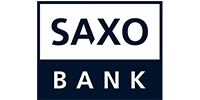
SAXO BANK
Saxo Bank is a well-established, low-risk broker based in Denmark that offers a wide range of trading services to sophisticated traders, institutions, and professional investors. It operates under strict regulatory oversight, ensuring a secure trading environment. The broker provides advanced trading platforms, including SaxoTraderPRO and SaxoTraderGO, catering to high-volume and professional traders with competitive spreads and access to over 71,000 instruments.
Why we chose Saxo Bank
For its comprehensive product range, spanning forex, commodities, indices, and popular CFDs. Such variety allows traders to build diversified portfolios within a single account. This breadth of markets supports evolving strategies and risk preferences.
| Broker Evaluation | 8.09 |
| Regulations | FCA |
| Minimum Deposit | $0 |
| Islamic Account | No |
| Payment Methods | Bank transfer, Credit Card |
| Main Branch | Copenhagen, Denmark |
| Customer Service | Market Opening Hours |
| Demo Account | Yes |
| Trading Platforms | SaxoTrader |
Pros
-
Extensive range of offerings.
-
Offers portfolio-based margin trading for pros.
-
Regulated by top regulators.
-
Excellent trading platforms.
-
Diverse account types.
-
Among the industry’s best research tools.
-
Offers protection for client accounts.
-
No inactivity fee.
-
No platform fees.
-
No minimum funding for entry-level accounts.
Cons
-
Some bonds, options, and futures fees are high.
-
With so many assets, fees can be confusing.
-
High minimum deposit for Platinum and VIP accounts.
-
Does not accept US clients.
-
No MT4 for traders who are used to the platform.
-
No GSLO.
-
No Islamic accounts.
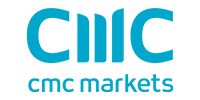
CMC MARKETS
CMC Markets is a global CFD and FOREX broker established in 1989. It is regulated by several authorities globally. The company delivers a formidable offering for traders thanks to excellent pricing, nearly 12,000 tradable instruments, and its proprietary Next Generation trading platform. The platform comes packed with quality research, innovative trading tools, and powerful charting. CMC provides traders with access to an extensive range of CFDs and spread betting across several asset classes.
Why we chose CMC Markets
This broker’s risk management tools and flexible order types stood out to us, enabling traders to tailor positions according to market conditions. Features like stop losses, take profits, and conditional orders provide strategic control. These tools are essential for disciplined trading.
| Broker Evaluation | 8.07 |
| Regulations | FCA |
| Minimum Deposit | 0$ |
| Islamic Account | No |
| Payment Methods | Bank transfer, Credit Card, Electronic Banks |
| Main Branch | United Kingdom |
| Customer Service | Market Opening Hours |
| Demo Account | Yes |
| Trading Platforms | Proprietary Platform, MT4, Web Platform |
Pros
-
Extensive range of offerings.
-
Regulated by the FCA (UK) and other top regulators.
-
Low FOREX fees.
-
Emphasis on education and customer service.
-
Great Web and mobile platforms.
-
Offers protection for client accounts.
-
Research amenities are industry leading.
Cons
-
Does not accept US clients.
-
High CFD spreads for certain indices.
-
It only offers CFD trading, so traders cannot own the underlying asset.
-
Does not support deposits and withdrawals through electronic payments.

think markets
ThinkMarkets is a multi-regulated broker with offices around the globe. The firm is primarily a CFD broker, allowing you to trade across 4,000 instruments in FOREX, futures, commodities, indices, ETFs, crypto, and stocks. With an emphasis on superior customer service, ThinkMarkets maintains round-the-clock support in several languages. It provides different trading accounts suited to individual traders' needs. This includes zero-commission accounts and access to trading guides, analysis tools, and industry news feeds.
Why we chose ThinkMarkets
We selected this broker for its fast and flexible funding options, including bank transfers and card payments. Smooth deposits and withdrawals reduce administrative delays and support efficient capital management. Accessibility of funds is an often-overlooked but essential feature.
| Broker Evaluation | 8.05 |
| Regulations | FCA |
| Minimum Deposit | $0 |
| Islamic Account | Yes |
| Payment Methods | Bank transfer - credit card - Electronic Banks - Crypto |
| Main Branch | Australia |
| Customer Service | Market Opening Hours |
| Demo Account | Yes |
| Trading Platforms | Proprietary Platform, Web Platform, MT4, MT5 |
Pros
-
Beginner assistance is offered through round-the-clock channels.
-
Spreads are as low as 0.0 pips.
-
Round-the-clock expert customer service.
-
CFD shares and indices come at no extra fee.
-
Zero broker fees for FOREX trading.
-
Technical analysis and quality market information.
Cons
-
No binary options are offered.
-
Commissions are charged for two account types.
-
Range of tradeable assets is not as wide as some competitors.
-
No US clients allowed.
There is a high degree of risk involved in trading securities like FOREX, or CFDs, which are highly complex instruments. As a trader, you could be exposed to excessive leverage, questionable broker tactics, market volatility, and limited regulatory protection. Despite your best trading techniques and risk management strategies, your efforts may not be profitable, and you could suffer losses.
What Is FOREX and Why Do We Need a Broker to Trade?
The foreign exchange market is a decentralized marketplace where global currencies are bought and sold. Currency trading is conducted electronically over the counter (OTC). This means that all transactions occur via computer networks between traders all over the world rather than on one centralized exchange. The FOREX market operates 24 hours a day and five days a week (Monday to Friday), except for international holidays. The FOREX market is the largest financial market in the world with some six trillion dollars changing hands daily. FOREX brokers in Spain play a key role in this marketplace by enabling clients to buy and sell through a trading platform. Most trading platforms are accessible in web and mobile format.
How Do I Choose the Best FOREX Broker in Spain?
Choosing the right broker means balancing cost, reliability, and market access. Compare trading fees, asset coverage, and leverage conditions across regulated platforms. Study execution speed, slippage history, and available analytical tools. A serious trader picks a broker that performs well under real market pressure, not just on paper.
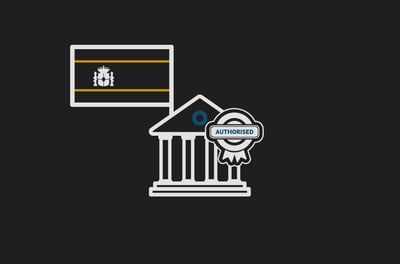
Regulation and Licensing in Spain
Ensure your chosen broker is regulated by a reputable authority. FOREX brokers must be regulated by the same regulators that regulate other financial assets, such as crypto, commodities, and indices. Remember that you do not have to use a broker with international regulation if your local broker is regulated by a solid local regulator. In the case of Spain, being regulated by the CNMV is enough.
The choice of a regulated broker isn't merely a matter of preference—it's a protective measure. When a broker is regulated, it undergoes stringent assessments to ensure transparency, fair trading practices and your financial security. Opting for an unregulated broker brings with it significant risks.
To ensure that your broker is legit, you can follow these steps:
Ask if the broker is licensed to sell you FOREX
Check if the broker is registered with a top-tier regulator or at least the applicable regulator in your area
Ask if your broker is part of a compensation scheme
Check your statements regularly to ensure that everything is in order
Remember that it's important to comply with all applicable requirements, including any self-regulatory organizations to which brokers belong, and not just those mentioned here.
On the matter of regulations, a vital part of the trading landscape, we present the five most important FOREX market regulatory bodies from around the world.
1. The FCA, UK;
2. The Swiss Financial Market Supervisory Authority (FINMA);
3. The Australian Securities and Investments Commission (ASIC);
4. The Financial Markets Authority, New Zealand; and
5. The National Futures Association (NFA), US.
While FOREX market regulatory bodies exist in almost every country, these five key regulators also happen to be some of the strictest.
Choose a broker under the watch of a trusted regulatory authority who is renowned for their rigorous oversight. There's no obligation to opt for an overseas regulator; reputable brokers also operate within your own jurisdiction. To confirm if your broker is registered with a regulator, navigate to the regulator’s official website.
Leverage
There are numerous significant regulators worldwide. Depending on how your broker operates within the regulatory system, you'll come across different rules regarding leverage. Several major regulators have set out specific guidelines to protect individual traders.
Besides being regulated by the CNMV, brokers in Spain must fall in line with the European Securities and Markets Authority (ESMA) guidelines and the Markets in Financial Instruments Regulation (MiFIR). Let's look at selected leverage rules around the world:
The CNMV in Spain:
30:1 for major currency pairs
20:1 for non-major currency pairs
2:1 for cryptocurrencies
The ASIC in Australia:
30:1 for major currency pairs
20:1 for non-major currency pairs, gold, and major stock market indices
10:1 for commodities other than gold and minor stock market indices
5:1 for equities (stocks) and other underlying assets
2:1 for cryptocurrencies
FINMA in Switzerland:
FINMA doesn't specify leverage limits like ASIC. However, Swiss brokers must strictly adhere to robust capital and risk management requirements, ensuring that they do not offer excessively high leverage that could endanger their financial stability or their clients' funds.
The FCA in the UK:
30:1 for major currency pairs
20:1 for non-major currency pairs, gold, and major indices
10:1 for commodities (excluding gold) and non-major equity indices
5:1 for individual equities and other reference values
2:1 for cryptocurrencies
It's worth mentioning that these rules mainly target regular individual clients. If you're a professional trader, your access to leverage might vary depending on both the rules in place and the policies of your broker. As you can tell, diligent regulators keep a close eye on how much leverage is allowed. Nevertheless, you can still use a regulator from your own country, even if it doesn't fall under the category of a top-tier regulator.
Retail traders should be cautious when trading with high leverage due to the significant risks involved. While leverage can increase gains, it can also magnify losses. You should be careful when trading with high leverage, that’s why you need the right knowledge and experience to handle the highs and lows that come with this form of trading.
Stop out
As a FOREX trader, it's crucial to understand the most important terms you'll encounter to avoid going into a negative balance. One of these terms is "stop out," which refers to a situation where a broker automatically closes some or all of your open positions to prevent your account from going into a negative balance.
This is especially relevant for traders using leverage. The stop-out level is typically expressed as a percentage, representing the margin level at which the broker starts to close out open trades.
Here are the three most common stop-out levels:
0% Stop-Out Level:
At this level, when the margin level of the account drops to 0%, the broker will automatically close all open positions. This is the most aggressive stop-out level, and it gives no room for your positions to recover, even if the market turns in your favor immediately after reaching this level.
Here's how it works:
Imagine you have a trading account with a balance of $10,000, and you've opened several positions in the market. Your broker has a 0% Stop-Out Level policy, which means that if your margin level drops to 0%, they will automatically close all your open positions to prevent further losses.
You start with a $10,000 trading account balance
Using 30:1 leverage, you can control $300,000 worth of currency with your $10,000 account
You open a position in EUR/USD with a notional value of $300,000, and the margin required for this trade is $10,000 (3.33% of the notional value)
The market moves against your position, causing your account balance to drop to $9,000
If your losses accumulate, your account balance decreases and your margin level (account equity divided by used margin) drops accordingly
When it reaches 0%, the broker's 0% Stop-Out Level policy comes into play
50% Stop-Out Level:
Here, if the margin level drops to 50%, the broker will start closing out positions. It offers a bit more flexibility compared to the 0% level. The broker will typically close the most unprofitable positions first, and if that's not enough to bring the margin level back above 50%, more positions will be closed until it's achieved.
100% Stop-Out Level:
A 100% stop-out level means that when a trader's equity equals the margin required for the open positions, the broker will start closing those positions. It's important to know that this is similar to the 0% level but might be worded differently based on broker terminology.
It's worth noting that while stop-out procedures are meant to protect traders from negative balances, they can lead to significant losses in volatile markets if positions are closed automatically, especially if the market quickly reverses after the stop out. As such, using protective measures like stop-loss orders and not over-leveraging is always a good idea. Additionally, the specific percentage and the order in which positions are closed can vary among brokers, so it's essential for traders to be aware of their broker's policy on stop-out levels.
Commissions and Fees
Trading fees can sometimes be hard to understand. Be sure to check how these fees compare with industry standards:
Spreads: There are two main kinds of spread, one is fixed and the other is variable. Generally, the spread refers to the gap between two prices, such as the bid/ask rate in a currency exchange rate. If you are getting a spread of 1.4 pips for the EUR/USD, you can rest easy that you are getting a good deal at present market rates. The narrower the better; this means that a spread of 1.4 pips is better than a spread of 2 pips. This article explains more about this important concept.
Commission: This is nothing more than the service charge that brokers require for carrying out transactions on behalf of their clients.
Rollover fees: When you leave a trade open overnight, the broker normally charges a rollover fee for the facility of holding your trade open for that period. This is because they assume the risk of the market changing adversely.
Withdrawal and Deposit Fees: Some platforms might charge fees for depositing or withdrawing funds. Pay attention to this. It's important to be aware of these and any associated limits or conditions.
Subscription or Inactivity Fees: Certain platforms have monthly charges or fees for inactive accounts. Ensure you're aware of these potential costs.
To keep track of trading fees, you can follow these steps:
Research different brokers and trading platforms.
Compare the fees and charges of each platform.
Choose a platform that offers competitive fees and suits your trading needs.
Remember that trading fees can have a significant impact on your trading profits, so it's important to choose a platform that offers competitive fees and suits your trading needs.
To assess trading costs accurately, the Arincen research team examined broker pricing across multiple sources, combining published fee schedules with observed trading conditions. Our analysis focuses on spreads, commissions, and additional charges that impact traders in practice. You can see the consolidated findings in the table that follows.







| Spread | Commission | Swap | Islamic Account | |
| Currencies | Starting from 1.3 Pips | 0$ | No | Available |
| Stocks | Starting from 18 Pips | 0$ | Yes | Unavailable |
| Commodities | Starting from 2.3 Pips | 0$ | No | Available |
| Indices | Starting from 4 Pips | 0$ | Yes | Unavailable |
Payments, Deposits, and Withdrawals in Spain
Our pricing review draws on Arincen’s independent research, where we analysed broker cost structures using both advertized rates and real-world trading data. By comparing spreads, commissions, and related fees, we aimed to reflect what traders are likely to experience. The outcome of this assessment is displayed in the table below.







| Method | Credit Card | Wire Transfer | Skrill | Neteller | Cryptocurrency | PayPal |
| Deposit fee | 0$ | $0 + Bank commission | 1.9% | 2.5% | Unavailable | 3.75% |
| Withdrawal fee | 0$ | $15 | 1% | $0 | Unavailable | 2% |
FOREX Trading Customer Service
Based on in-house analysis by the Arincen team, we reviewed pricing data from both official broker websites and live market conditions. This included spreads, commissions, and trading fees observed in real use. The results of that comparison are summarized in the table below.







| Live Chat | Phone | |||
| Available | Available | Available | Available | Available |
| Quick response | Quick response | Fast | Fast | Fast |
Technical Aspects of the Broker’s Website
When it comes to sharing sensitive personal information online, such as a credit card, cyber security is paramount. You should, therefore, always be on the alert for SSL certification and two-factor authentication (especially when registering with a new site). For your own safety, make sure that you use a strong password to secure your account.
Trading Platforms, Tools, and Features
When picking a trading platform, it's crucial to consider what works for both beginners and experienced traders. Here are some things to think about:
Technical Analysis Tools: Look for a platform that has solid technical indicators. They are useful for making smart trading decisions.
Customization and User-Friendliness: You should be able to tweak the platform to match your style. Within the MetaTrader product family, both MT4 and MT5 are known for their excellent customization features. Here’s a comparison between the two.
Platform Accessibility: Whether it's web-based or downloadable, a good platform should give you options.
Risk Management Tools: Trading is risky. A top-notch platform should allow you to set stop-losses and take-profits to manage those risks.
Performance and Reliability: As a newcomer, you should be looking for a platform that runs smoothly when called upon.
Learning and Help Resources: It's a boost if the platform is not only visually pleasing and customizable, but also comes with guides and support to help you when you're stuck.
To find the perfect platform, here's what you can do:
Figure Out Your Style and Needs: First, decide how you want to trade and what you need from a platform.
Research Different Platforms: Look at what's out there and compare what they offer.
Test with a Demo Account: Try the platforms by using a demo account. This gives you the chance to trade in a risk-free environment with virtual money.
Check Reliability and Reputation: Make sure the platform is known for being dependable and trusted in the trading world.
Remember, the platform you choose can make a significant difference in how successful your trading is, so take your time picking the right one.
Ask Other Traders on Our Network
Arincen has gone to great lengths to forge a receptive environment where traders of all backgrounds come to meet. After all, Arincen’s goal is to simplify the world of trading. Our Website provides an unrivaled slate of tools, like our market-leading signals, rolling news, and a thriving community where traders from all sides of the experience spectrum can learn from each other.
Tip for those who have no experience
We believe that a solid foundation in education and research is essential for every successful trader. That’s why we’ve created a set of resources specifically for you. Our comprehensive articles provide an understanding of the basics, while our videos offer insights from industry insiders. Stay updated with the latest developments in the market through our newsfeed, signals, and detailed analytics.
FOREX Trading Scams and How to Avoid Them
Will Your Money Be Protected if Your Broker Becomes Insolvent?
Trading with an unregulated broker can have dire consequences. Regulated brokers must comply with strict rules to protect your interests. Unregulated brokers may engage in fraudulent activities, such as misappropriating client funds, and may not have adequate measures in place to protect your data. For a list of the best regulators, read our article here.
The Dos and Don’ts of FOREX Brokers
- The FOREX brokerage firm cannot recommend a buy or sell;
- The FOREX brokerage firm must not provide price or market expectations (rise/fall);
- The FOREX firm cannot control your financial dealings (deposit/withdrawal);
- The FOREX brokerage firm should not “manage” your portfolio under any circumstance.
- The FOREX brokerage firm cannot grant a client a bonus unless there are clear terms guiding it beforehand.
- The brokerage firm must not use bank accounts not under its name; and
- FOREX brokerage firms cannot have or offer the service of account managers.
Recommended Brokers
Tradable Assets and Instruments
As part of our evaluation process, the Arincen team gathered and cross-checked broker pricing from official documentation and live trading environments. This approach allowed us to compare spreads, commissions, and fees under actual market conditions. The breakdown of our findings is presented in the table that follows.
| Brokers | Currency pairs | Stocks | Indices | Commodities | Crypto | ETFs |
| Tradview | 80 Pairs | 5000 Shares | 10 Indices | 10 Commodity | 30 Coins | Unavailable |
| ICM Capital | 67 Pairs | 89 Shares | 17 Indices | 12 Commodity | 6 Coins | Unavailable |
| XTB | 57 Pairs | 1848 Shares | 36 Indices | 22 Commodity | 22 Coins | 135 ETFs |
| IG | 81 Pairs | 21714 Shares | 49 Indices | 39 Commodity | 11 Coins | 12858 ETFs |
| Saxo Bank | 320 Pairs | 22000 Shares | 49 Indices | 39 Commodity | 9 Coins | 6700 ETFs |
| CMC Markets | 330 Pairs | 8000 Shares | 80 Indices | 100 Commodity | 18 Coins | 200 ETFs |
| Think Markets | 46 Pairs | 3750 Shares | 15 Indices | 11 Commodity | 21 Coins | 350 ETFs |
Which FOREX Broker Has the Best Platform?
Which FOREX Broker Charges the Lowest Fees?
After conducting thorough research, we can say with confidence that ICM’s ECN account offers the best low fees for any kind of trader.
Which FOREX Broker Offers the Most CFDs?
For brokers that deal in the most CFDs, look no further than CMC Markets and IG, both of which offer extensive CFD selections.
Which FOREX Broker Offers the Most Assets?
Which FOREX Broker is Best for Professionals?
Who is Arincen and What Do We Do?
Conclusion
Arincen’s Review Methodology
The team at Arincen collected more than 120 pieces of data covering in excess of 100 licensed FOREX companies. Data collection was done in three ways:
Companies’ Websites.
Other Websites that have ranked FOREX companies.
A survey questionnaire (referred to here as Survey “1”) was sent to the companies invited to participate in the exercise. We have identified 13 criteria for our assessment, each containing several aspects and carrying its own relative weight. These include licensing, deposits and withdrawals, number of assets, etc.
Afterwards, we validated the data by:
Registering with FOREX companies as a secret shopper and/or as Arincen.
Survey number “2,” in which we asked these companies’ customers for important feedback and experience.
The next step saw us evaluate and rank each company, relying on the hard work of 15 Arincen employees. We were very careful in ensuring the most accurate assessment possible, including considering different languages, as well as the various mobile-app operating systems, e.g., Apple, Samsung, etc.
To add credibility to our research project, we sent a final and third survey (referred to here as Survey “3”) to enable participating FOREX companies to evaluate our own research and whether it accurately reflects the realities on the ground. We were fortunate enough to receive a mark of 9.9 out of 10! We have kept to a minimum the margin of error, which stood at a measly 1%. To learn more about how we came up with the evaluation, please click here.
Forex Risk Disclaimer
Trading foreign exchange on margin carries a high level of risk, and may not be suitable for all investors. The high degree of leverage can work against you as well as for you. Before deciding to trade foreign exchange you should carefully consider your investment objectives, level of experience, and risk appetite. The possibility exists that you could sustain a loss of some or all of your initial investment and therefore you should not invest money that you cannot afford to lose. You should be aware of all the risks associated with foreign exchange trading, and seek advice from an independent financial advisor if you have any doubts.
FAQ
The taxation of forex trading proceeds in Spain depends on several factors, including your residency status, the frequency of your trading activity, and the purpose of your trading. If you are a tax resident of Spain, your worldwide income is subject to taxation in Spain, including any profits you make from FOREX trading. FOREX gains or losses are typically treated as capital gains or losses.
Yes, trading FOREX trading is entirely legal in Spain and the greater EU. As a highly developed free-market economy, there are no restrictions on this activity.
The FOREX market is a place where global currencies are bought and sold. It is a large and active marketplace that requires technologically superior tools if you are to participate as a retail trader. The market operates 24 hours a day and five days a week (Monday through Friday), except international holidays.
FOREX trading involves buying and selling different worldwide currencies for a profit. Retail traders select a currency pair and, in anticipation of market-driven changes in value, wait for the right moment to make a sale for a profit.
FOREX brokers charge any combination of commissions, spreads and financing fees. Brokers can either charge a spread (the difference between the buy and sell price of a currency pair) and include their facility fee in the spread, or they can charge only a market rate spread and levy a commission per trade outside the spread. Financing fees come into play if you hold your position overnight. You must pay a financing cost for the benefit of keeping your positions open for an extended time.

